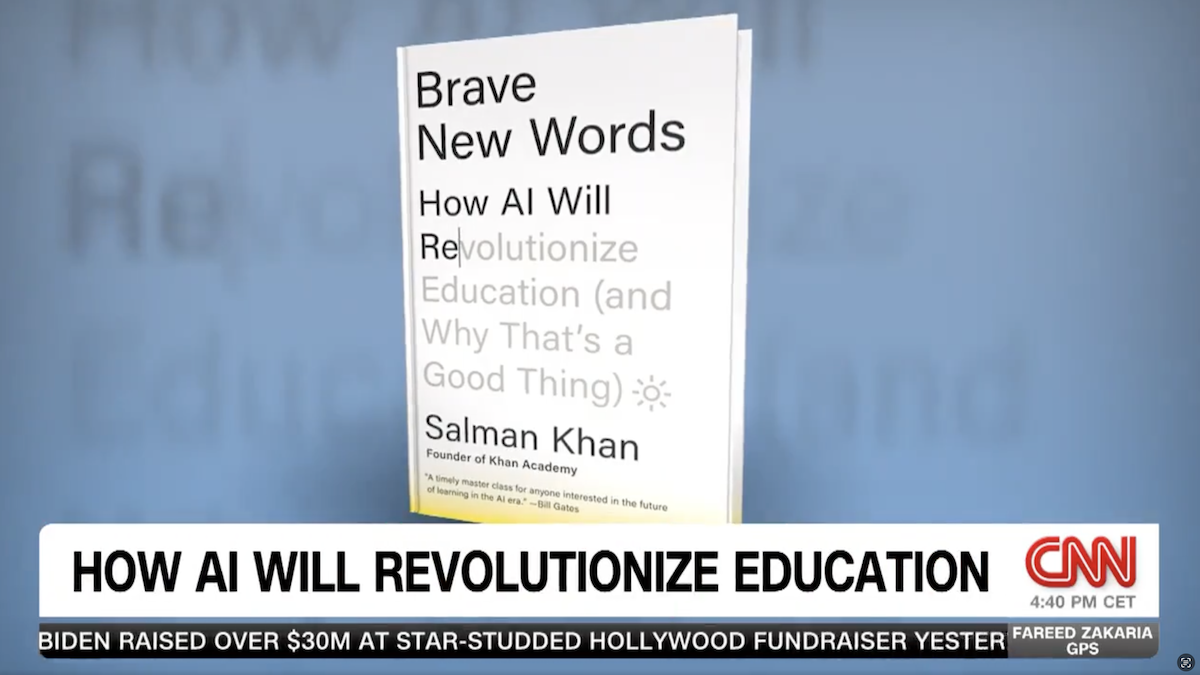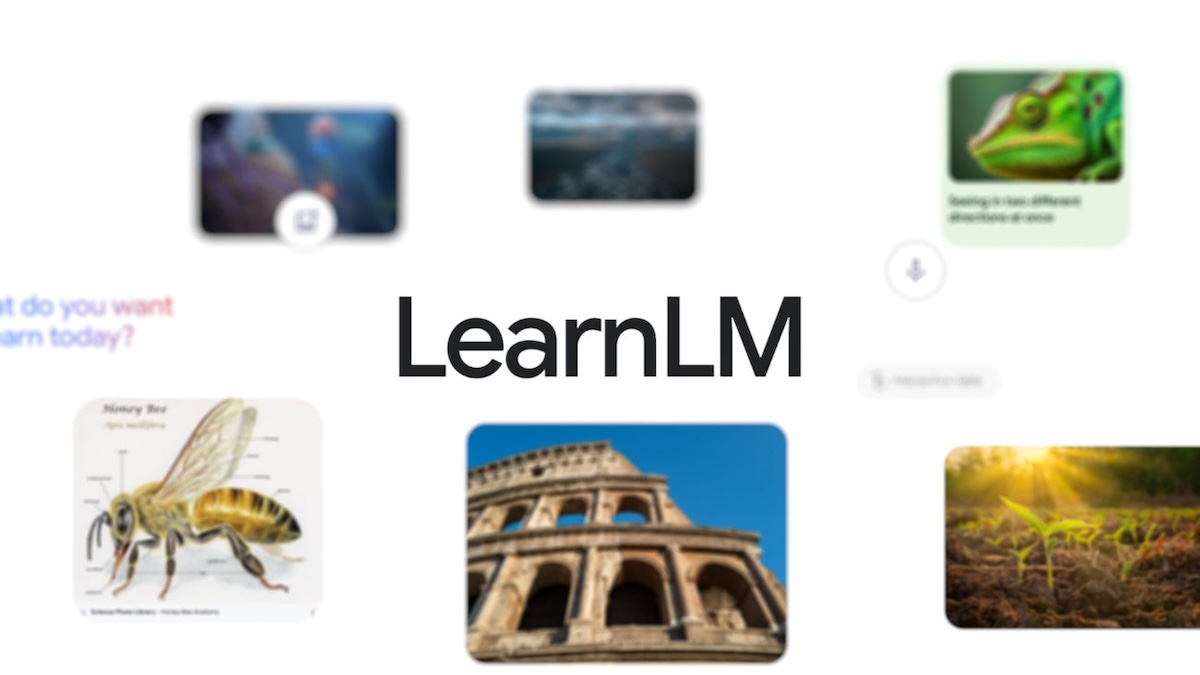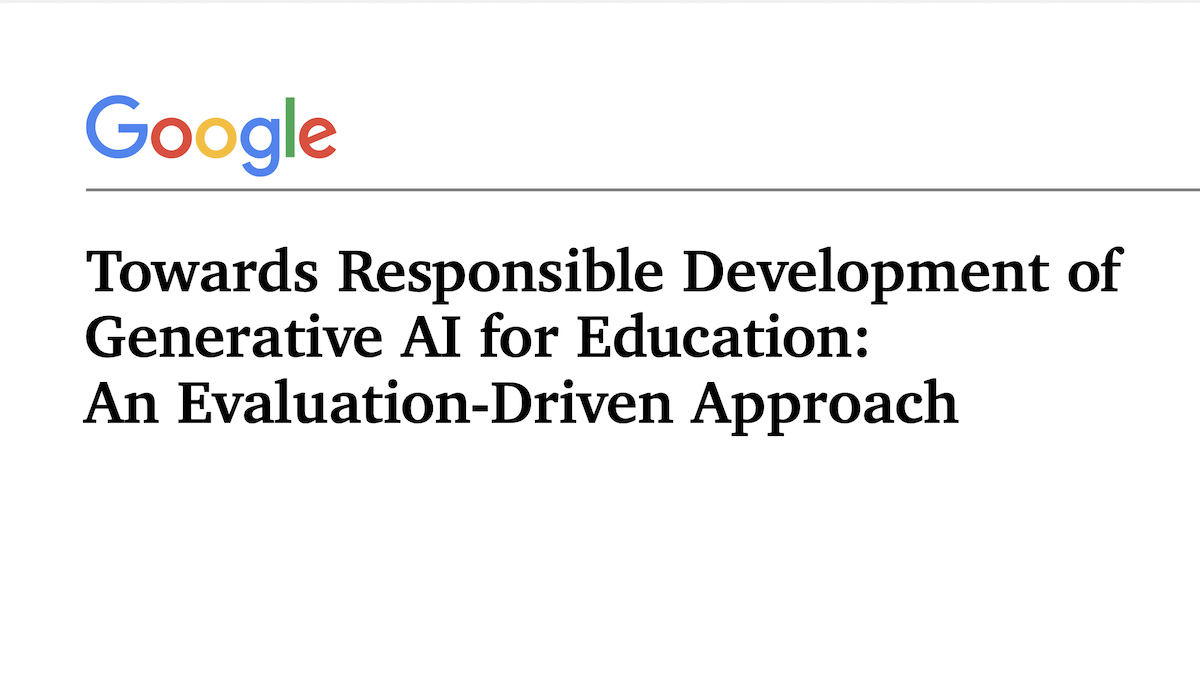Good. AI is improving education. But be VERY careful what you wish for. AI Agents must be provably SAFE.
How is AI transforming education? My conversation with @salkhanacademy, CEO and founder of Khan Academy, who says that AI, like all other technology, “amplifies human intent.” pic.twitter.com/JHDIYECGh9
— Fareed Zakaria (@FareedZakaria) June 16, 2024
LEARN MORE
- Khanmigo For Teachers Now 100% Free for All U.S. Teachers, Thanks to Microsoft Support, MAY 20, 2024
- Big news for educators! Today at Microsoft Build, Microsoft and Khan Academy announced a new partnership to bring our pilot Khanmigo for Teachers to every U.S. teacher. U.S. Educators: Get the Khanmigo pilot for free
James Manyika, Senior Vice President, Research, Technology & Society
As Google’s SVP of Research, Technology & Society, James oversees Google Research and leads efforts across Google and Alphabet to responsibly shape and advance our most ambitious innovations to benefit people and society.
Being bold on AI means being responsible from the start May 10, 2023 4 min read
From breakthroughs in products to science to tools to address misinformation, how Google is applying AI to benefit people and society
FORBES. Google I/O 2024 Sets Its Sights On Education With New AI LearnLM
Dan Fitzpatrick Contributor Author and global leader on AI & educational transformation
Google I/O 2024 has emboldened the case for artificial intelligence in education.
With the unveiling of a range of groundbreaking AI tools, Google has demonstrated its unwavering commitment to integrating large language models into every facet of its ecosystem. One announcement that made educators stop in their tracks was the launch of LearnLM.
“Today marks a new chapter for learning and education at Google,” stated James Manyika, Google’s SVP of technology and society.
A Catalyst For Educational Transformation?
LearnLM potentially represents a giant leap forward for personalized learning experiences.
At the event, they showed viewers various interactive features across a wide array of Google products, from an interactive Learning Coach in the Gemini app to an immersive educational experience on YouTube. Based on these demonstrations, LearnLM could become an indispensable tool for learners worldwide. As Manyika explained, “LearnLM is grounded in educational research, making learning experiences more personal and engaging.”
The integration of LearnLM into Google’s existing educational tools could signify a new era in digital learning. Sam Gibson, education sector strategy lead at The Warehouse Group in New Zealand, wrote on LinkedIn that, “The pace that companies such as Google are working at to enhance learning through AI is hugely exciting. By working towards allowing students to essentially have a personal tutor at the ready, teachers can then work in ways that allow them to provide much more targeted support and guidance to their students. It is an amazing time to work in education!”
According to Google, they are integrating LearnLM into several of their popular products, enhancing their functionality. Users will be able to employ a new feature called Circle to Search on Android to highlight math or physics problems and get step-by-step solutions. Viewers watching educational videos on YouTube will be able to ask questions of the videos and receive instant explanations. This integration across platforms could increase accessibility and provide the tools to allow students to learn anytime and anywhere.
Empowering Educators & Learners
Google have collaborated with organizations such as Columbia Teachers College and Khan Academy in the development of LearnLM. This shows a commitment to ensuring that LearnLM’s development is rooted in the teacher and learner’s experiences. These tools show potential to not only save time but also provide deeper insights into student learning, helping educators tailor their approaches to meet diverse needs. Ben Whitaker, a former U.K. school leader and innovation consultant, adds, “Educators do one of the most important jobs in the world. LearnLM will allow them to do what they do best: connect with learners in authentic and informed ways. Rather than focusing on content creation, remembering individual details of student needs and maintaining manual records.”
According to Google, their pilot program in Google Classroom will use LearnLM to simplify lesson planning, helping teachers discover new ideas and unique activities, find engaging materials and differentiate their lessons to meet each student’s needs. They hope that this will give teachers more time to focus on student interaction.
The Rise Of AI Agents
Google’s I/O announcements placed a strong emphasis on LearnLM and its educational applications, but it also hinted at a broader shift towards an AI agent-powered future. Demis Hassabis, CEO of Google DeepMind, remarked, “We are still in the early days, and you’ll see glimpses of our approach throughout the day, but let me show you the kinds of use cases we are working hard to solve.”
Google’s comprehensive approach and focus on mass-market appeal cannot be underestimated. Integrating LearnLM and other AI innovations into its vast ecosystem of products and platforms could democratize access to cutting-edge educational tools. As Sundar Pichai, CEO of Google, passionately declared, “All of this shows the important progress we’ve made, as we take a bold and responsible approach to making AI helpful for everyone.”
After OpenAI’s announcements this week and now Google’s offering, the battle for AI supremacy continues. Google’s vision for the future of education and AI-powered experiences is audacious, ambitious and poised to redefine the landscape of learning for generations to come.




